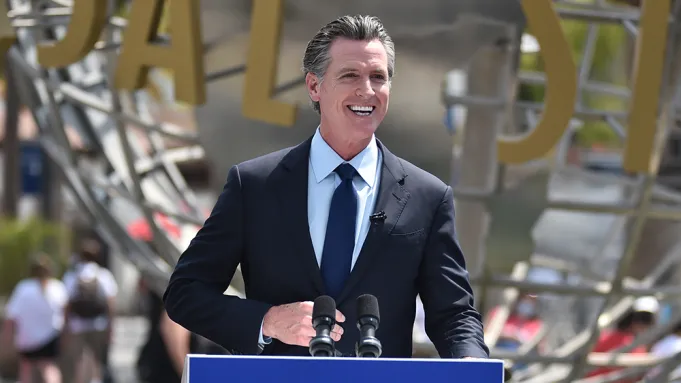In a high-stakes battle over mental health initiatives, California Governor Gavin Newsom has amassed an impressive $14.2 million war chest for Proposition 1, a key mental health measure set to appear on the March 5 primary ballot. The proposition, designed to address mental health issues through a $6.4 billion bond, aims to fund housing and treatment facilities while redistributing money from a tax on high earners.
Newsom’s campaign draws support from longstanding allies in healthcare, unions, and tribes, creating a stark contrast with the meager funds of the opposition group, Californians Against Proposition 1, which raised a mere $1,000 according to campaign finance records. The opponents, consisting largely of small mental health providers and current users of the mental health system, fear potential resource losses if the proposition passes.
Paul Simmons, director of Californians Against Proposition 1, framed the struggle as a “David vs. Goliath” scenario, with opponents fighting to preserve community services like crisis response teams and peer counseling. According to Simmons, those opposing the measure are individuals directly affected, including “white-collar professionals” on the brink of homelessness.
In response, the Yes On 1 campaign, led by Newsom, argues that the opponents are defending a broken system that fails to address the critical needs of those most at risk. The campaign emphasizes Proposition 1’s broad and diverse coalition, including first responders, mental health professionals, doctors, nurses, and veteran groups who support the measure as a solution to fix the state’s troubled mental health care system.
Newsom positions Proposition 1 as a comprehensive response to California’s dual crises of opioid addiction and homelessness. The proposed $6.4 billion bond is projected to build 4,350 housing units, with half allocated for veterans, and provide 6,800 mental health and addiction disorder treatment slots. The measure comes at a time when researchers estimate an 8,000-bed shortage in inpatient adult treatment facilities, and over 171,000 Californians, including 6% veterans, live on the streets.

Read more:
- California Lawmaker Proposes Speed Limit Technology to Curb Road Deaths
- Tragedy Strikes as Young Dancer Dies from Mislabeling of Peanuts in Cookies
- New Concealed Carry Law Denied by Another Northern California Count
- U.S. Takes Action to Safeguard Whales Around Offshore Wind Farms
Governor Newsom, recognized for championing mental health reform, asserts that the state has invested $28 billion in the mental health system during his tenure. Senator Susan Eggman, co-author of the legislation creating Prop. 1, sees the measure as the final piece in completing California’s mental health transformation.
Major healthcare companies have rallied behind Newsom’s campaign. Sutter Health, Kaiser Permanente, and the California Hospital Association, together contributing over $3 million, emphasize the need to improve the current behavioral health crisis response, particularly for those waiting in emergency rooms for mental health treatment beds.
Notable contributions also come from long-time Newsom supporters, including the Federated Indians of Graton Rancheria, the State Building and Construction Trades Council, and the California Correctional Peace Officers Association. These donations highlight the diverse support base behind Proposition 1, ranging from tribal contributions to support from unions representing skilled workers.
Opponents, though financially disadvantaged, have gained support from groups with dedicated voters, such as the League of Women Voters of California and the Howard Jarvis Taxpayers Association. These organizations recommend their members vote against Proposition 1, criticizing the rushed legislative process and expressing concerns about reallocation of funds from the millionaire’s tax.
The opposition argues that Proposition 1 may lead to significant cuts in specific mental health programs, with Los Angeles County estimating potential reductions in outpatient care services from 32% to 18%. Mental health advocacy groups, including Mental Health America of California, CalVoices, and Disability Rights California, express concerns that the measure might increase involuntary treatment and divert funds from community mental health services.
While the opposition struggles with limited funds, it has garnered support from mental health advocates, including the National Alliance on Mental Illness (NAMI) California, which represents thousands of individuals with serious mental illness and their families.
As California braces for this crucial mental health ballot measure, the battle between Newsom’s well-funded campaign and the resource-strapped opposition underscores the complex challenges in addressing mental health reform and the need for a comprehensive, balanced approach to ensure the well-being of the state’s residents.

